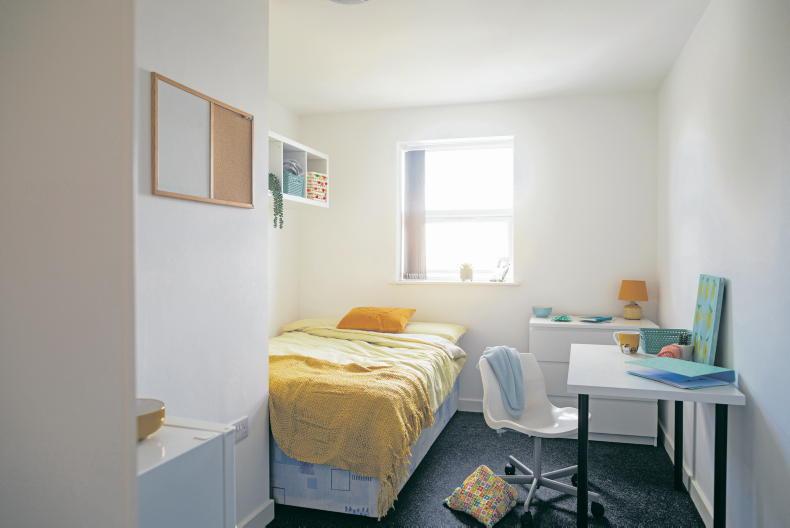A career working in vital frontline services involves risk, but the satisfaction of helping people in their time of need can be very rewarding.
With the age limit for entering An Garda Síochána now increased to 50 years, the policing service is attracting a diverse range of candidates, many of whom have agricultural backgrounds.
In rural Ireland, the role of a garda extends beyond enforcing the law. It is also about providing support in the community by responding to serious incidents of crime and theft on farms, ensuring public safety and making a difference in the lives of local residents.
In 2024, the age limit for becoming a garda increased from 35 years to 50 years. According to Chief Superintendent Eamon Curley, who covers the Kilkenny division, the age limit was prohibiting a huge cohort of people from joining, those who could help to create a more diverse policing service.
“The removal of age barriers and embracing diversity fosters a stronger, more inclusive and resilient police service, ready to deal with the complex challenges of modern society.
“It is not the case any longer that people go into a job and stay there forever. People are living longer, they’re healthier for longer and regularly change careers.
“The age increase gives us an opportunity, particularly where we have such specialists and diverse units within An Garda Síochána, for people to bring a level of expertise that we maybe haven’t seen before,” says Eamon.
Since recruitment recommenced at the Garda College in December 2022, nearly 1,500 trainees have been doing their training at the Templemore campus.
Applicants are paid €354 per week during their 36 weeks of training. Those that graduate achieve a Level 7 BA in Applied Policing, accredited by the University of Limerick.
The starting salary for a garda trainee after the 36 weeks is €37,311 and recruitment is open until 27 February.
To reach the trainee stage, however, applicants must go through a rigorous selection procedure, designed to test whether they have the qualities necessary to become a successful member of An Garda Síochána. This includes an interview and medical assessment along with a physical competence test.
Irish Country Living travelled to Portlaoise Garda Station to speak with two gardaí with strong agricultural ties.

Garda van at Portlaoise Garda Station. \ Claire Nash
Garda Megan Fleming, Portlaoise Garda Station
“My dad is a garda, and my mom is a farmer. Since I was small, it was something I always wanted to do,” she says.
Megan completed a BSc in Sociology and Social Policy before entering Templemore as she wanted to get some life experience under her belt.
“The sociology degree looked at society, how people act and how it impacts their lives. That benefited me in the guards. I applied when I was in my final year of college and, because of COVID-19, I went to the Garda College in June 2020. I then completed nine months (as a probationary garda) in Westport close to home,” she says.
The only challenge Megan faced during the application process was initially failing the fitness test. However, applicants are given two chances to pass and she got it on the second go. In March 2021, she returned to Templemore for four months. The full training period is two years.
“It was a lot different to what I thought it would be. I came from college, where you’re in big lecture halls and it was up to you to learn.
“In the Garda college, you’re in small classrooms, constantly getting tested all the time. It was probably a better way to learn because we were in a discussion group using real-life examples from our student station,” says Megan.
She appreciates the variety in her role and the importance of community engagement in rural areas. Based in Portlaoise, she drives home for her four days off and enjoys helping out on her boyfriend’s farm. She also completed the Green Cert in Mountbellew Agricultural College while working full-time.
“It’s only as I got older that I started to appreciate growing up on a farm. When I was younger, I didn’t want to go out and help, but now I enjoy it.
“I came to Portlaoise three years ago. I didn’t know anyone but I was renting with other guards who were all from the west of Ireland,” she says.
What Megan likes about her job is that no two days are the same and she gets to help people.
“It’s not easy for an injured party to come into the garda station or even to call the gardaí. So it’s good that they are met with a friendly face to talk to.
“It’s important for the public to know their local garda, and for us to know the people as well,” she says.
“There’s something in the guards for absolutely everyone. There are so many different units that people don’t even know exist,” Megan adds.
Garda Brian King, Rathdowney Garda Station

Garda Brian King, Rathdowney Garda Station. \ Claire Nash
Growing up, Brian’s uncle was a guard and he asked him if he would consider it as a career. Brian wanted to travel, so he moved to Australia but he always kept the notion at the back of his mind.
Brian applied for the guards in 2008, when he returned home just before the financial crash.
“I passed all the tests to be accepted and then the recruitment freeze came in, so there were no guards hired for about five years,” recalls Brian.
Instead Brian started a management role in Tesco. He got married and he and his wife Ciara had their first child. One day, Ciara mentioned the gardaí to him again.
“I thought I was too old at that stage. I was in my 30s and presumed they were probably looking for people in their 20s. But then I started talking to a couple of people and they said they were looking for applicants who have good life experience.
“Working in Tesco, I was dealing with the public, and complaints. That kind of experience is what they look for in an interview,” he says.
Age wasn’t an issue for Brian; indeed there were people older than him and from diverse backgrounds among the 200-strong class.
“I’ll be honest, I was 15 years out of school and I did worry about going in, trying to get back into study, especially when I had a small child at home. I thought, where will I find the time? But it’s fairly manageable and you’re working within your group. People are good at helping.
“Some might be put off because of the fitness test, but if you do a bit of preparation, you should pass it,” he advises.
The new roster is four days on and four days off which Brian is happy with as it allows him to spend time with children – he and Ciara now have four – and he gets to farm part-time.
“It can be difficult depending on where you’re commuting from as you’re tired after the 12-hour shift.
“However, I’m off three days during the week and when you have small kids at home, it’s three days where you’re not paying childcare costs so that is a big saving,” he says.
As a beef farmer with dry stock heifers, he runs a simple enterprise alongside his full-time position.
For anyone considering a career in the gardaí, Brian advises: “Have an open mind going into it. You never know, it might just surprise you.”
See publicjobs.ie
Read more
Going, going, gone – find a career under the hammer
Land Report: farm succession challenge is a factor in land prices
A career working in vital frontline services involves risk, but the satisfaction of helping people in their time of need can be very rewarding.
With the age limit for entering An Garda Síochána now increased to 50 years, the policing service is attracting a diverse range of candidates, many of whom have agricultural backgrounds.
In rural Ireland, the role of a garda extends beyond enforcing the law. It is also about providing support in the community by responding to serious incidents of crime and theft on farms, ensuring public safety and making a difference in the lives of local residents.
In 2024, the age limit for becoming a garda increased from 35 years to 50 years. According to Chief Superintendent Eamon Curley, who covers the Kilkenny division, the age limit was prohibiting a huge cohort of people from joining, those who could help to create a more diverse policing service.
“The removal of age barriers and embracing diversity fosters a stronger, more inclusive and resilient police service, ready to deal with the complex challenges of modern society.
“It is not the case any longer that people go into a job and stay there forever. People are living longer, they’re healthier for longer and regularly change careers.
“The age increase gives us an opportunity, particularly where we have such specialists and diverse units within An Garda Síochána, for people to bring a level of expertise that we maybe haven’t seen before,” says Eamon.
Since recruitment recommenced at the Garda College in December 2022, nearly 1,500 trainees have been doing their training at the Templemore campus.
Applicants are paid €354 per week during their 36 weeks of training. Those that graduate achieve a Level 7 BA in Applied Policing, accredited by the University of Limerick.
The starting salary for a garda trainee after the 36 weeks is €37,311 and recruitment is open until 27 February.
To reach the trainee stage, however, applicants must go through a rigorous selection procedure, designed to test whether they have the qualities necessary to become a successful member of An Garda Síochána. This includes an interview and medical assessment along with a physical competence test.
Irish Country Living travelled to Portlaoise Garda Station to speak with two gardaí with strong agricultural ties.

Garda van at Portlaoise Garda Station. \ Claire Nash
Garda Megan Fleming, Portlaoise Garda Station
“My dad is a garda, and my mom is a farmer. Since I was small, it was something I always wanted to do,” she says.
Megan completed a BSc in Sociology and Social Policy before entering Templemore as she wanted to get some life experience under her belt.
“The sociology degree looked at society, how people act and how it impacts their lives. That benefited me in the guards. I applied when I was in my final year of college and, because of COVID-19, I went to the Garda College in June 2020. I then completed nine months (as a probationary garda) in Westport close to home,” she says.
The only challenge Megan faced during the application process was initially failing the fitness test. However, applicants are given two chances to pass and she got it on the second go. In March 2021, she returned to Templemore for four months. The full training period is two years.
“It was a lot different to what I thought it would be. I came from college, where you’re in big lecture halls and it was up to you to learn.
“In the Garda college, you’re in small classrooms, constantly getting tested all the time. It was probably a better way to learn because we were in a discussion group using real-life examples from our student station,” says Megan.
She appreciates the variety in her role and the importance of community engagement in rural areas. Based in Portlaoise, she drives home for her four days off and enjoys helping out on her boyfriend’s farm. She also completed the Green Cert in Mountbellew Agricultural College while working full-time.
“It’s only as I got older that I started to appreciate growing up on a farm. When I was younger, I didn’t want to go out and help, but now I enjoy it.
“I came to Portlaoise three years ago. I didn’t know anyone but I was renting with other guards who were all from the west of Ireland,” she says.
What Megan likes about her job is that no two days are the same and she gets to help people.
“It’s not easy for an injured party to come into the garda station or even to call the gardaí. So it’s good that they are met with a friendly face to talk to.
“It’s important for the public to know their local garda, and for us to know the people as well,” she says.
“There’s something in the guards for absolutely everyone. There are so many different units that people don’t even know exist,” Megan adds.
Garda Brian King, Rathdowney Garda Station

Garda Brian King, Rathdowney Garda Station. \ Claire Nash
Growing up, Brian’s uncle was a guard and he asked him if he would consider it as a career. Brian wanted to travel, so he moved to Australia but he always kept the notion at the back of his mind.
Brian applied for the guards in 2008, when he returned home just before the financial crash.
“I passed all the tests to be accepted and then the recruitment freeze came in, so there were no guards hired for about five years,” recalls Brian.
Instead Brian started a management role in Tesco. He got married and he and his wife Ciara had their first child. One day, Ciara mentioned the gardaí to him again.
“I thought I was too old at that stage. I was in my 30s and presumed they were probably looking for people in their 20s. But then I started talking to a couple of people and they said they were looking for applicants who have good life experience.
“Working in Tesco, I was dealing with the public, and complaints. That kind of experience is what they look for in an interview,” he says.
Age wasn’t an issue for Brian; indeed there were people older than him and from diverse backgrounds among the 200-strong class.
“I’ll be honest, I was 15 years out of school and I did worry about going in, trying to get back into study, especially when I had a small child at home. I thought, where will I find the time? But it’s fairly manageable and you’re working within your group. People are good at helping.
“Some might be put off because of the fitness test, but if you do a bit of preparation, you should pass it,” he advises.
The new roster is four days on and four days off which Brian is happy with as it allows him to spend time with children – he and Ciara now have four – and he gets to farm part-time.
“It can be difficult depending on where you’re commuting from as you’re tired after the 12-hour shift.
“However, I’m off three days during the week and when you have small kids at home, it’s three days where you’re not paying childcare costs so that is a big saving,” he says.
As a beef farmer with dry stock heifers, he runs a simple enterprise alongside his full-time position.
For anyone considering a career in the gardaí, Brian advises: “Have an open mind going into it. You never know, it might just surprise you.”
See publicjobs.ie
Read more
Going, going, gone – find a career under the hammer
Land Report: farm succession challenge is a factor in land prices










SHARING OPTIONS